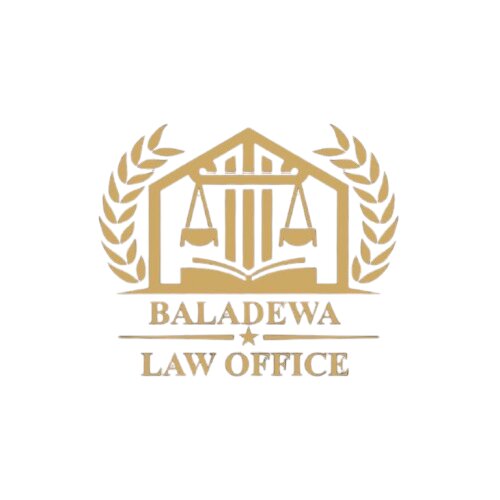Best Marine Insurance Lawyers in Indonesia
Share your needs with us, get contacted by law firms.
Free. Takes 2 min.
Or refine your search by selecting a city:
List of the best lawyers in Indonesia
About Marine Insurance Law in Indonesia
Marine insurance in Indonesia is a specialized field of insurance that covers the loss or damage of ships, cargo, terminals, and any transport or cargo by which property is transferred, acquired, or held between two places. Governed by the Indonesian Insurance Law and the Indonesian Commercial Code, marine insurance plays a crucial role in protecting the interests of parties involved in maritime commerce. The rapid growth of Indonesia's maritime industry, owing to its strategic location and extensive coastline, has led to an increased focus on marine insurance to mitigate the risks associated with maritime operations.
Why You May Need a Lawyer
There are several scenarios in which you might require legal assistance in marine insurance matters:
- Claim Denials: Insurance companies may deny claims if they believe the terms of the policy have not been met. A lawyer can help assess the validity of such denials and represent your interests in disputes.
- Policy Interpretation: Marine insurance policies can contain complex language and clauses. An attorney experienced in maritime law can interpret these provisions, ensuring that you fully understand your coverage.
- Contract Negotiations: If you are looking to procure a marine insurance policy, a lawyer can negotiate terms on your behalf to secure favorable conditions.
- Litigation: In cases where disputes escalate, legal representation is crucial in court or arbitration proceedings to resolve conflicts effectively.
- Compliance Issues: Ensuring compliance with Indonesian maritime laws and regulations is essential. Legal experts can guide you through the necessary requirements.
Local Laws Overview
The regulation of marine insurance in Indonesia primarily falls under the purview of the following local laws:
- Indonesian Commercial Code (KUHD): This foundational legal framework governs marine insurance policies, outlining the rights and responsibilities of parties involved.
- Insurance Law No. 40 of 2014: This law regulates the overall insurance industry in Indonesia, setting forth the legal requirements for insurance providers, including those dealing with marine insurance.
- Maritime Law No. 17 of 2008: This law covers various aspects of maritime operations, including shipping, navigation, and the protection of maritime interests, having a direct impact on marine insurance.
Frequently Asked Questions
What is covered under marine insurance policies in Indonesia?
Marine insurance typically covers loss or damage to ships, cargo, freight, terminals, and even legal liabilities arising from these operations.
Are there different types of marine insurance available?
Yes, marine insurance can be split into marine cargo insurance, hull insurance, liability insurance, and freight insurance, each covering different aspects of maritime operations.
What factors affect the premium of a marine insurance policy?
Insurance premiums are influenced by factors such as the type and value of cargo, shipping route, duration of the voyage, and prevailing risks associated with maritime trade.
Can a marine insurance policy be customized?
Yes, insurers typically offer customizable policies to meet the specific needs and risk exposures of the insured parties.
How is the value of a claim determined?
Claims are generally based on the assessed value of the loss or damage, considering the policy's terms and limits.
What should I do if my claim is denied?
Seek the advice of a marine insurance lawyer to evaluate the insurer's grounds for denial and to explore options for appealing or contesting the decision.
Do I need marine insurance for domestic shipping in Indonesia?
While not mandatory, obtaining marine insurance for domestic shipping is advisable to protect against potential losses or damages.
Are there any mandatory requirements for marine insurance in Indonesia?
Specific operations, such as international shipping, may require marine insurance under Indonesian law or international maritime conventions.
What is a warranty in marine insurance policies?
A warranty is a stipulation in a policy that must be strictly complied with. Non-compliance can invalidate a claim, so it is crucial to understand all warranties in your policy.
Who regulates marine insurance providers in Indonesia?
The Financial Services Authority (OJK) oversees insurance providers in Indonesia, ensuring they comply with legal and financial regulations.
Additional Resources
For more information on marine insurance in Indonesia, the following resources can be helpful:
- Financial Services Authority (OJK): The regulatory body for financial and insurance services, offering guidance on industry standards and regulations.
- Indonesian Marine Insurance Association: An organization that represents the interests of marine insurance professionals and offers industry insights.
- Ministry of Transportation: Provides information on maritime policies and regulations that impact marine insurance.
Next Steps
If you require legal assistance in marine insurance matters, here are the recommended steps:
- Consult a Marine Insurance Lawyer: Seek expert advice from a lawyer specializing in maritime law and insurance to assess your situation and provide tailored legal counsel.
- Gather Documentation: Prepare all relevant documents related to your insurance policy, claims, and any correspondence with the insurer.
- Review Your Policy: Carefully review your insurance policy with legal assistance to understand all terms, conditions, and potential areas of dispute.
- Contact Relevant Authorities: If necessary, reach out to regulatory bodies like the OJK for guidance and to report any malpractices.
Lawzana helps you find the best lawyers and law firms in Indonesia through a curated and pre-screened list of qualified legal professionals. Our platform offers rankings and detailed profiles of attorneys and law firms, allowing you to compare based on practice areas, including Marine Insurance, experience, and client feedback.
Each profile includes a description of the firm's areas of practice, client reviews, team members and partners, year of establishment, spoken languages, office locations, contact information, social media presence, and any published articles or resources. Most firms on our platform speak English and are experienced in both local and international legal matters.
Get a quote from top-rated law firms in Indonesia — quickly, securely, and without unnecessary hassle.
Disclaimer:
The information provided on this page is for general informational purposes only and does not constitute legal advice. While we strive to ensure the accuracy and relevance of the content, legal information may change over time, and interpretations of the law can vary. You should always consult with a qualified legal professional for advice specific to your situation.
We disclaim all liability for actions taken or not taken based on the content of this page. If you believe any information is incorrect or outdated, please contact us, and we will review and update it where appropriate.
Browse marine insurance law firms by city in Indonesia
Refine your search by selecting a city.















